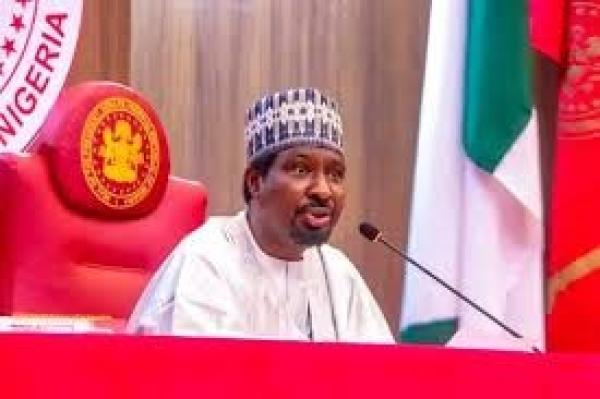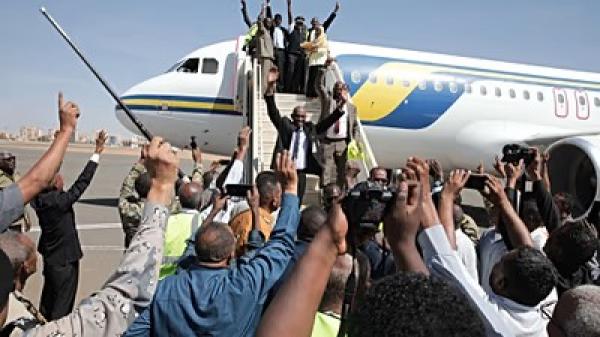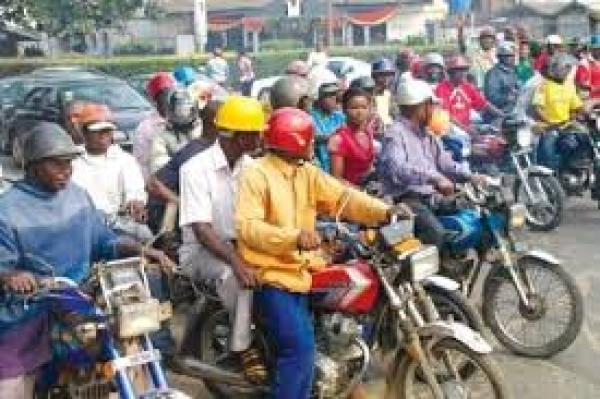
The archetypical commercial driver in the Ibadan metropolis loathes the Road Union workers to the letter and sees them as mere pests who serve no other purpose than to reap where they never sow. The average Road Union worker also barely cares less, as he regards the commercial driver as a cheat who likes to eat his cake and still have it. On a smooth working day, the helpless drivers are usually left with no other option than to cede to the whims and caprices of the bottle totting road union workers who are known for their combative demeanours. In spite of how bizarre the monetary charges often seem, many of these drivers do feel that no Jupiter can alter the status quo let alone changing it. Thus, they accept this unlawful arrangement as a lot which just has to be borne in order to survive.
While it has become more of a routine for commuters to experience skirmishes between commercial drivers and the restive youths who constitute the Road Union, the melee that do happens whenever these drivers are beset with low patronage are known to burst their seams especially when there are no uniform men to put things in order. The cat and mice tussle between these twosomes has been on for years and the malady seem to have been entrenched into the woof and warp of transport business especially within the capital city.
From the perspective of the average commuter, the Road Union workers are mere marauders who constitute social pellets in a society laced with odd socioeconomic pyramids.
” You would sincerely feel sorry for these drivers going by the arduous nature of their jobs. They work under the sun, struggling to lure passengers into their vehicles and you end up finding these nuisances drawing scribbles on the car just to obtain #50 in the process” Kalu, a banker who plies the Orita-Bodija axis retorted in annoyance.
“I feel more upset because this norm has been on right from when I was a teen. These drivers might have their faults but I consider it unjustifiable when they work so hard only to be taxed for working at a particular time. Funny enough, these Road Union workers hang around sporadically and suddenly surface asking for money. You can imagine how painful it is when you pay for a service that has no receipt” Olagunju, a student of the University of Ibadan also told CEOAfrica.
“I think the biggest undoing of these drivers is their illiteracy. These thugs charge them for working in the early hours of the morning. They sometimes pay these charges to Road Union workers at different bus stops. Once it is past noon again, they are being levied by as many Road Union workers who find them at different bus stops. The same applies when they work late in the evening. I have however never seen a situation where the Road Union workers come to the aid of these drivers whenever they have issues with the police or encounter contingencies like punctured tires. It is a very ugly trend” said, Opemipo who also commutes from New Garage to Bodija where she works
“In fact, these Road Union guys even go as far as levying the gullible drivers what they call owo olopa (meaning police fee). That still has never stopped the police officers from collecting bribes from the naïve drivers. I really do not know how that operates but it looks more like an institutionalized injustice” Nneka said
Challenge to Oja-Oba
Most commercial drivers who ply this route usually begin their trip from New Garage. This writer boarded a bus and got himself acquainted with the driver. The bus was about commencing the journey when a poorly dressed Road Union worker surfaced with in his faded uniform with raised eyebrows. He brought out his ink pen and scribbled more like an Arabic lettering on the glass before moving towards the bus conductor who reluctantly prodded him with a #50 note meant to be the levy for what is colloquially being referred to as ‘owo ita’ (literarily meaning external fee). The bus had barely travelled a kilometer when another Road Union worker jauntily caught up with the bus and got a #50 note after a futile resistance from the driver and his conductor.
When this driver was asked why commercial drivers seem to have no solution to the daylight exploitation which they are being subjected to, he told this writer that the problem was owing to the NURTW itself.
“It is more than what you think. There are some drivers among us who are privy to this cheap exploitation. They know what is going on and would simply cast a blind eye to these ills. There was a colleague of mine who joined partisan politics and attempted staging a revolt against certain eggheads in the NURTW. His house was sacked and he had to leave Ibadan” He said.
On the issue of who spends the money being collected, he noted that a good chunk is being spent by these guys on hard drinks while they remit the left over to their bosses. “Many of them are drunkards. Some of them were once bus drivers but now prefer to just hang around and earn money with no stress” He said.
When the idea of seeking the services of a legal adviser was thrown to him, the driver laughed and argued that cabals within the NURTW would not let that be.
“That would have been possible if we, the affected drivers were united. There is so much division among us and you know most drivers are not well read” He admitted.
The bus was already approaching Oja-Oba when a bellicose Road Union worker was encountered. With the ferocity on his face, it was obvious that he had an existing grudge to settle with the driver. After heated exchanges, the driver had no other option than to budge and let go a sum of #100 this time around. He however kept raining expletives at him carving the figure of a frustrated person as he drove, with so much anger burning in him. Before alighting from his bus, I told him once more to consider the legal option and he thanked me greatly.
Challenge to Mokola
Being one of the busiest road axes in Ibadan, both Micra taxi and bus drivers ply this route. The NURTW also has one of its offices located at Challenge. I was met by a stern looking Road Union loyalist who refused granting an audience on account of being paranoid about reporters. A taxi driver who spoke with CEOAfrica had earlier given the lead that the man was one of the Union’s eggheads. Despite several pleas to pacify him, he bluntly refused and feigned to be a mere worker.
Unlike the Orita-Oja Oba axis, Challenge to Mokola seems to have a more civil appeal. I witnessed an ongoing argument between a taxi driver and one of the Road Union workers who was bent on collecting the levy before letting the driver go. The driver likewise, looked unbending and was ready to square up with him. With the stage already set, the driver switched on his ignition and was ready to vamoose while the Road Union worker sat on the bonnet not minding the risk he was courting in the process. It took the intervention of passersby before the driver eventually succumbed to the demands of the road’s emperor.
There are definitely still a number of intrigues sketchy as at the time of compiling this episode of the age-long malaise in the transport system of the capital city. Efforts to hear the other side of the coin proved abortive. Into whose coffers does this revenue go into and for what purpose are they being levied? What are the requirements for recruiting personnel into the Road Union? These and many more would be dealt with in the next concluding episode of the Pharaohs and Israelites of the road network in the city of Ibadan.






















